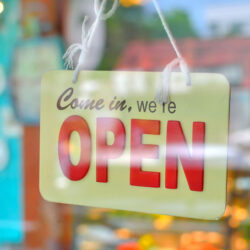Costa Rica FIRE got a mention recently on VICE.com, as I shared tips for digital nomads – i.e., gainfully employed people who choose to do their work remotely so they can travel at the same time.
Apparently, there are 5 million digital nomads in the US, and Scott and I hope to join them as soon as next year, when we are empty-nesters!
The VICE piece was focused more on the types of jobs you can do as a digital nomad, and did not include all of the ideas and detail I had shared about important considerations.
Luckily, the interview was via email, and so I have all the information saved:
Since a lot of the people who have the flexibility to live this lifestyle are freelancers or entrepreneurs, what sort of things do they need to keep in mind when considering things like savings, taxes, and their 401k. – Evie Carrick, VICE
Not only are the mobile workers freelancers or entrepreneurs, but even traditional jobs are being given to contractors (cost of benefits is rising so it’s harder for companies to afford in-house talent). So everyone should consider themselves a freelancer, whether they want to be mobile or not! Some considerations:
- Income – Your income will swing so yes you need savings to bridge when your work pipeline is light, or when you’re starting out and still getting established. If you still have a job, start tracking your monthly expenses so you actually know what they are (don’t guess as you’ll probably underestimate) and try to set aside several months’ worth before you go freelance. Or try to land your first client while you’re still working so you minimize the ramp up time. Keep in mind that there is often a lag between when you do the work and when you get paid, so you need savings to cover the waiting time too.
- Taxes – When you do get paid, you’re now responsible for taxes. Just because the company paying you doesn’t take out taxes, it doesn’t mean that you won’t owe any. Check with your accountant – let them know that you’re changing from employee on payroll to a freelancer. Depending on how much you make, you may have to make quarterly tax payments, not just the full payment in April. For every project fee you get, set aside a portion for taxes – at least 25%, but check with your accountant who can give a firmer estimate based on your situation.
- Retirement Savings – On a happy note, as a freelancer you can still set aside money in a retirement account – a SEP IRA or solo401k (there are different eligibility rules so again, check with your accountant). This money is set aside pre-tax so it can cut your tax bill. If you already have a 401k established in your previous company, that needs to be kept in a separate retirement account b/c it’s a different kind of IRA. Don’t just withdraw it either. You’ll owe the income taxes on your withdrawal and if you’re under 59 and a half, a 10% penalty.
- International – As a mobile employee, if you are a US citizen but working internationally, there will be visa and tax implications that vary based on where you are, how long you’re staying, and what kind of company set-up you have (sole proprietor v. LLC or corporation). Check with your accountant and research your specific situation.
What are the downsides of this sort of lifestyle and career choice? – – Evie Carrick, VICE
The swings in income, the discipline you need to pay taxes on your own, the extra accounting, the extra set-up on your retirement plan are all possible downsides.
If you’re not trained in sales and marketing, you have to get used to promoting yourself and your work.
Your job description broadens too – you’re not just doing the work you’re hired for as a freelancer, but you also have to do sales, marketing, immigration, taxation, invoicing, pricing, and collections. You do not have the resources of a company behind you. When the printer jams or your laptop stops working, you are also the IT Help Desk!
What are the pros? – – Evie Carrick, VICE
There are many pros to remote freelancing:
- You have the autonomy to create your own schedule.
- The sky’s the limit with income – if you can command higher rates, there’s no salary band that keeps you down.
- You have the opportunity to work with different clients on different projects.
- You put your brand out there, and when you’re successful, it’s the ultimate job security – you’re not relying on a company to find you work, you are doing it for yourself.
What sort of advice do you have for people who are hoping to transition into a remote career? – – Evie Carrick, VICE
Be honest with yourself about what your skills, values and interests are to ensure that your temperament aligns with the pros and cons of this type of work. Some people can’t take the uncertainty. Others see traditional careers as a bigger risk so are OK with having to work hard to build something now but with the possible payoff of their own book of business later.
There are many ways to build a fulfilling career. Just because someone you know seems to have a booming freelance career and can work anywhere doesn’t mean that’s right for you.
Similarly, just because someone you know would never dream of leaving an office job and thinks that’s the riskiest thing in the world, it doesn’t mean that it’s too risky or the wrong choice for you.
Anything else you’d like to add? – – Evie Carrick, VICE
I left traditional employment at 36 and my husband at 46, and we’re both much happier even years later. That said, when I have work that puts me onsite at company offices, I totally understand the allure of an office job – there’s a collegiality, there are resources (that IT Help Desk!), there’s a shared mission.
Then again, there’s also collegiality among entrepreneurs, there are co-working spaces and other shared resources that bring entrepreneurs together, and a generous spirit and collaboration among entrepreneurs.
So it’s not that one is bad and one is good. You can have a fulfilling career both ways.


 We are Scott and Caroline, 50-somethings who spent the first 20+ years of our adult lives in New York City, working traditional careers and raising 2 kids. We left full-time work in our mid-40’s for location-independent, part-time consulting projects and real estate investing, in order to create a more flexible and travel-centric lifestyle.
We are Scott and Caroline, 50-somethings who spent the first 20+ years of our adult lives in New York City, working traditional careers and raising 2 kids. We left full-time work in our mid-40’s for location-independent, part-time consulting projects and real estate investing, in order to create a more flexible and travel-centric lifestyle.  Financial independence and early retirement is not something we originally focused on, but over time realized it was possible. Our free report,
Financial independence and early retirement is not something we originally focused on, but over time realized it was possible. Our free report, 








Hey Costa Rica FIRE, i’m in Puerto Viejo right now 🙂 it’s a beautiful place! I’m not working while here, but I do work from home so it probably could be an option. My wife doesn’t work remotely though so we just have to take vacations when we can. Still, working from home is great!
Awesome! As long as you have a good internet connection and cell service it is great when you can work from anywhere. We haven’t been to Puerto Viejo yet but this year intend to do a deep exploration of the full Nicoya peninsula so I’m sure we’ll get there! Hopefully the weather is great for you – I know this is the time of year it transitions from rainy to nice…